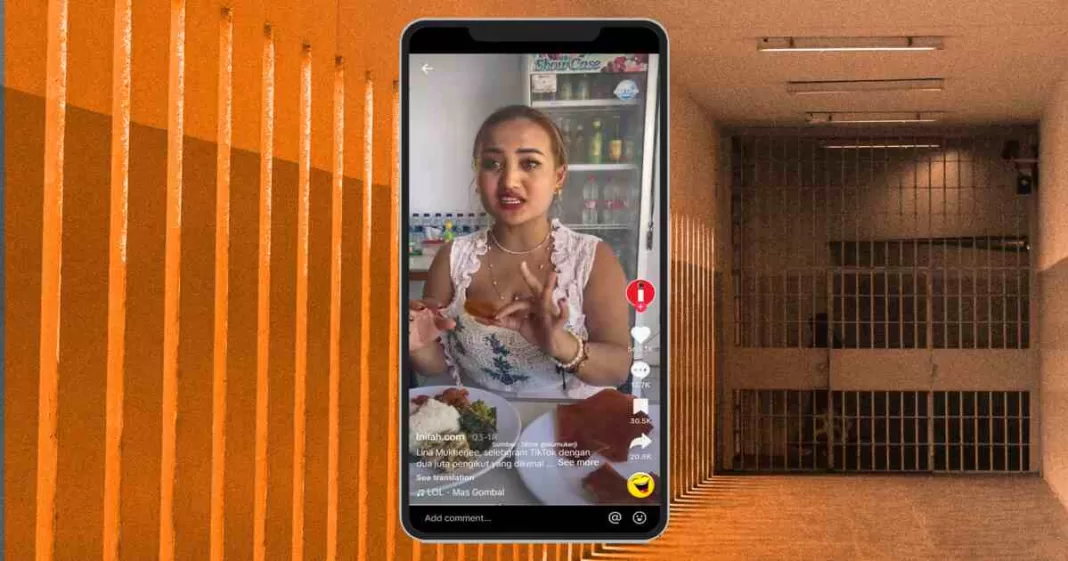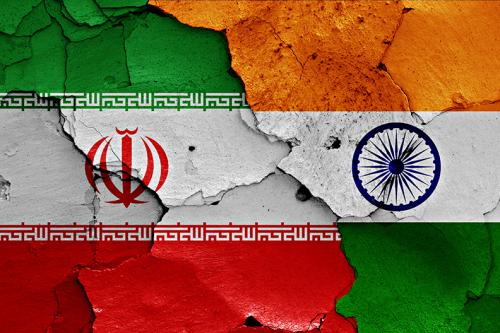Indonesia, a predominantly Muslim country with a large influencer industry, is grappling with the intersection of its blasphemy laws and the fast-paced world of social media. The case of Indonesian influencer Lina Mukherjee, who now faces a potential five-year jail sentence for a TikTok video involving pork, highlights the complexities and controversies surrounding online defamation and religious sensitivities.
Blasphemy Laws and their Consequences
Indonesia’s blasphemy laws have drawn criticism from human rights groups, raising concerns about their potential misuse to target minority groups. The Indonesian Ulema Council’s fatwa against Lina Mukherjee serves as an example of the law’s impact on online behaviour. While the country officially follows a secular system, the influence of conservative Islamist groups has led to an increased weaponization of blasphemy laws, further blurring the lines between freedom of expression and offence.
Read More: Chinese engineer accused of blasphemy in Kohistan
Ambiguity of Online Defamation
The digital landscape presents unique challenges when it comes to defining and addressing online defamation. Gatria Priyandita, a cyber policy analyst, points out the lack of clarity in determining the “red line” on issues such as blasphemy, racism, and defamation. This ambiguity provides accusers with ample room to make accusations and intensifies public confusion regarding the boundaries of acceptable online behaviour.
Influencer Industry and Real-life Consequences
Indonesia boasts a vast and well-developed influencer industry. However, the disconnect between online antics and real-life consequences has become apparent. The case of a tax official’s son, whose extravagant lifestyle raised suspicions, led to a massive tax department investigation. Similarly, influencers Indra Kesuma and Doni Salmanan faced charges related to fraud and spreading fake news through their social media platforms. These incidents highlight the impact influencers can have on public perception and the legal ramifications of their online actions.
Rising Tide of Online Defamation
With the upcoming presidential election in 2024, experts anticipate a rise in highly personal content and, consequently, an increase in cases of online defamation. Priyandita suggests that accusations, ranging from blasphemy to racial or ethnic discrimination, will become more prevalent in the digital realm. As Indonesia’s influencer industry continues to flourish, the need for clear guidelines and legal frameworks to address online defamation becomes crucial.
Call for Reform
Andreas Harsono, a researcher for Human Rights Watch Indonesia, has long criticised Indonesia’s blasphemy laws as a “toxic law” that is often exploited for political and religious purposes. Harsono argues that if Indonesia is to be considered a true democracy, cases like Lina Mukherjee’s should result in freedom rather than imprisonment. This case raises important questions about the need for legal reform to ensure the protection of free speech and safeguard against the abuse of laws that stifle expression.
Read More: New govt. weaponized Pakistan’s blasphemy laws against Imran Khan: US panel
Indonesia finds itself at the crossroads of its traditional blasphemy laws and the rapidly evolving digital landscape. The case of Lina Mukherjee underscores the need for a balanced approach that respects religious sensitivities while safeguarding freedom of expression. As the influencer industry continues to thrive, it is crucial to establish clear guidelines and legal frameworks that strike the right balance between protecting religious sentiments and preserving the right to free speech. Only through thoughtful reform can Indonesia navigate the complex interplay between its legal system, social media, and the evolving landscape of online defamation.














